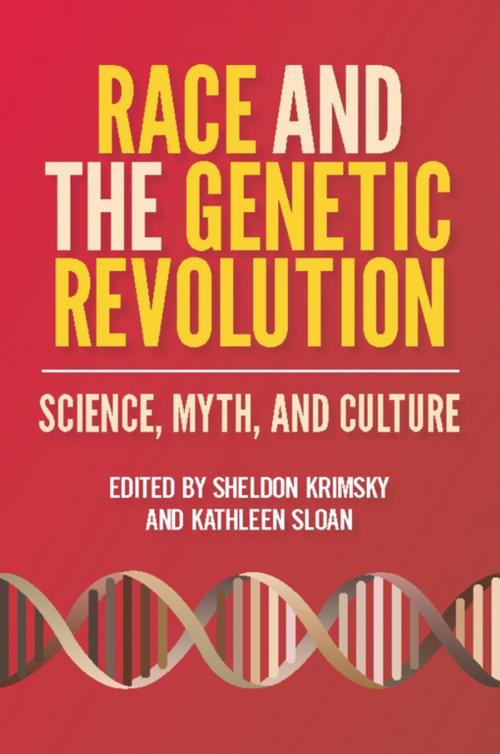Race and the Genetic Revolution
Science, Myth, and Culture
Nonfiction, Science & Nature, Science, Biological Sciences, Genetics, Biology, Technology| Author: | ISBN: | 9780231527699 | |
| Publisher: | Columbia University Press | Publication: | September 27, 2011 |
| Imprint: | Columbia University Press | Language: | English |
| Author: | |
| ISBN: | 9780231527699 |
| Publisher: | Columbia University Press |
| Publication: | September 27, 2011 |
| Imprint: | Columbia University Press |
| Language: | English |
Do advances in genomic biology create a scientific rationale for long-discredited racial categories? Leading scholars in law, medicine, biology, sociology, history, anthropology, and psychology examine the impact of modern genetics on the concept of race. Contributors trace the interplay between genetics and race in forensic DNA databanks, the biology of intelligence, DNA ancestry markers, and racialized medicine. Each essay explores commonly held and unexamined assumptions and misperceptions about race in science and popular culture.
This collection begins with the historical origins and current uses of the concept of "race" in science. It follows with an analysis of the role of race in DNA databanks and racial disparities in the criminal justice system. Essays then consider the rise of recreational genetics in the form of for-profit testing of genetic ancestry and the introduction of racialized medicine, specifically through an FDA-approved heart drug called BiDil, marketed to African American men. Concluding sections discuss the contradictions between our scientific and cultural understandings of race and the continuing significance of race in educational and criminal justice policy.
Do advances in genomic biology create a scientific rationale for long-discredited racial categories? Leading scholars in law, medicine, biology, sociology, history, anthropology, and psychology examine the impact of modern genetics on the concept of race. Contributors trace the interplay between genetics and race in forensic DNA databanks, the biology of intelligence, DNA ancestry markers, and racialized medicine. Each essay explores commonly held and unexamined assumptions and misperceptions about race in science and popular culture.
This collection begins with the historical origins and current uses of the concept of "race" in science. It follows with an analysis of the role of race in DNA databanks and racial disparities in the criminal justice system. Essays then consider the rise of recreational genetics in the form of for-profit testing of genetic ancestry and the introduction of racialized medicine, specifically through an FDA-approved heart drug called BiDil, marketed to African American men. Concluding sections discuss the contradictions between our scientific and cultural understandings of race and the continuing significance of race in educational and criminal justice policy.















